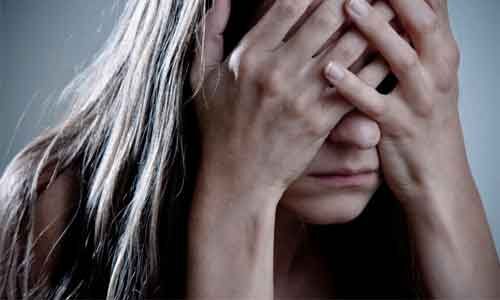- Home
- Medical news & Guidelines
- Anesthesiology
- Cardiology and CTVS
- Critical Care
- Dentistry
- Dermatology
- Diabetes and Endocrinology
- ENT
- Gastroenterology
- Medicine
- Nephrology
- Neurology
- Obstretics-Gynaecology
- Oncology
- Ophthalmology
- Orthopaedics
- Pediatrics-Neonatology
- Psychiatry
- Pulmonology
- Radiology
- Surgery
- Urology
- Laboratory Medicine
- Diet
- Nursing
- Paramedical
- Physiotherapy
- Health news
- Fact Check
- Bone Health Fact Check
- Brain Health Fact Check
- Cancer Related Fact Check
- Child Care Fact Check
- Dental and oral health fact check
- Diabetes and metabolic health fact check
- Diet and Nutrition Fact Check
- Eye and ENT Care Fact Check
- Fitness fact check
- Gut health fact check
- Heart health fact check
- Kidney health fact check
- Medical education fact check
- Men's health fact check
- Respiratory fact check
- Skin and hair care fact check
- Vaccine and Immunization fact check
- Women's health fact check
- AYUSH
- State News
- Andaman and Nicobar Islands
- Andhra Pradesh
- Arunachal Pradesh
- Assam
- Bihar
- Chandigarh
- Chattisgarh
- Dadra and Nagar Haveli
- Daman and Diu
- Delhi
- Goa
- Gujarat
- Haryana
- Himachal Pradesh
- Jammu & Kashmir
- Jharkhand
- Karnataka
- Kerala
- Ladakh
- Lakshadweep
- Madhya Pradesh
- Maharashtra
- Manipur
- Meghalaya
- Mizoram
- Nagaland
- Odisha
- Puducherry
- Punjab
- Rajasthan
- Sikkim
- Tamil Nadu
- Telangana
- Tripura
- Uttar Pradesh
- Uttrakhand
- West Bengal
- Medical Education
- Industry
Women with PTSD may face pregnancy complications

New York, April 14 (IANS) Researchers have found that elevated symptoms of post-traumatic stress disorder (PTSD) and moral injury can lead to pregnancy complications.
PTSD symptoms include re-experiencing the trauma through flashbacks or nightmares, numbness, sudden anger, and hyperarousal.
"The results suggest that screening for PTSD and moral injury during the perinatal period is important to identify women who may need treatment for these problems," said study lead author Dr Yael I Nillni from National Center for PTSD at the VA Boston Healthcare System and Boston University School of Medicine in the US.
According to the researchers, PTSD is more common in women veterans than civilian women. In addition to combat, experiences such as childhood abuse, military sexual trauma, and sexual harassment can cause PTSD in women veterans.
Moral injury refers to distress related to the transgression of deeply held moral beliefs. It can lead to feelings of shame, guilt, and demoralization. Moral injury can result from a number of experiences, such as combat and military sexual trauma.
Past research has shown that a person does not need to be directly involved in a transgressive act to face moral injury. Being exposed to transgressions can also lead to moral injury.
According to the study, published in the Journal of Traumatic Stress, while PTSD and moral injury frequently occur together in veterans, they are distinct conditions.
Previous research has shown PTSD may increase the risk of gestational diabetes, preeclampsia, and preterm birth.
Some evidence suggests that moral injury can negatively impact physical health, but its effects on pregnancy have not been studied.
To better understand how these two conditions affect pregnancy, the researchers followed 318 women veterans who became pregnant within three years of separating from military service.
They found that women with elevated PTSD symptoms were at greater risk of adverse pregnancy outcomes than women with lower symptoms PTSD. Elevated symptoms of moral injury also increased the risk of adverse outcomes.
Both conditions raised the risk of gestational diabetes, preeclampsia, and preterm birth. Only PTSD increased the risk of postpartum depression, anxiety, and the perception of a difficult pregnancy.
For both PTSD and moral injury, the more severe the symptoms, the higher the likelihood of pregnancy complications.
The results were consistent with other studies on PTSD and pregnancy, the researchers said.
--IANS
bu/na
Dr Kamal Kant Kohli-MBBS, DTCD- a chest specialist with more than 30 years of practice and a flair for writing clinical articles, Dr Kamal Kant Kohli joined Medical Dialogues as a Chief Editor of Medical News. Besides writing articles, as an editor, he proofreads and verifies all the medical content published on Medical Dialogues including those coming from journals, studies,medical conferences,guidelines etc. Email: drkohli@medicaldialogues.in. Contact no. 011-43720751


